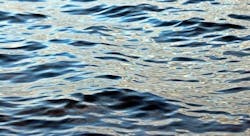Challenge to the 117th Congress: Water Infrastructure
George Vorsheim is a communications consultant, previous MARCOMM Director at Environment One Corp., and is a WWD Editorial Advisory Board member. Vorsheim can be reached at [email protected]. Vanessa Leiby is executive director of WWEMA. Leiby can be reached at [email protected].
undefinedNick Lowe’s brilliant “(What’s So Funny ‘Bout) Peace, Love and Understanding?” still stands as a definitive imploring anthem for a dark and dangerous world. Emerging from within the lyrics’ despair is this call to arms: So where are the strong?/And who are the trusted?/And where is the harmony?
Yes, a historically bizarre transition of executive power commences this month during the convention of the incoming 117th U.S. Congress. We ask who will be the strong, trusted and harmonious legislators in an otherwise gridlocked and egotistically stunted Congress?
WWD Senior Managing Editor Bob Crossen asked me for another “crystal ball” piece, but like so many other times, the gaze into the crystal just becomes a reflection of the gazer’s own projections. So no, I will not fall for that again. But, I will offer these ideas for a successful Congress, at least as far as the water and wastewater agenda goes.
1. Hey Congress, for the good of the nation, be bipartisan, not bipolar. Since both the Republicans and Democrats put forth fairly solid infrastructure plans during this last Congress, let’s see and support a bi-partisan and bicameral plan moving forward.
One of our industry’s best resources in Washington remains the Water & Wastewater Equipment Manufacturers Association (WWEMA at www.wwema.org). And to any suppliers of solutions and services, if you haven’t joined yet, make it a late New Year’s resolution.
WWEMA Executive Director Vanessa Leiby created a ‘Washington Watch List’ for us.
2. Unfinished business. Congress still needs to address appropriations for 2021. The Continuing Resolution (CR) expired Dec. 11. Although the Senate Appropriations Committee had released all of its 12 bills, they had not yet passed the Senate. While the House has passed 10 of its 12, there is likely no time to iron out the differences and another CR is more likely in the new year.
There continues to be discussion about passing the Water Resources Development Act (WRDA) bill that could include some additional infrastructure funding, but it is not likely to be significant. To get it passed, it will likely be streamlined and focused on the core aspects of the bill’s purpose.
3. Stimulus. A bipartisan group of senators worked over the 2020 Thanksgiving weekend to find a compromise $908 billion ‘framework’ for another stimulus bill. It was shot down by Sen. Mitch McConnell. The extra weekly unemployment benefits and renter’s protection from eviction expired December 31.
4. Looking forward into 2021. One of the first actions will be review of the various Executive Orders published in the last four years with decisions on which ones to rescind. It is expected that the ‘one in two out’ and various deregulatory actions by the Trump Administration will be removed.
The U.S. EPA has a number of regulations on deck and they can hit the ground running if they want to promulgate some new regulations. They have been developing lots of policy and assistance tools in the last four years to keep the balls moving forward and those will likely form the foundation for furthering the agency’s mission.
The Water Finance Exchange (WFX) launched recently to help increase investment in the nation’s aging water infrastructure. This P3 type organization is focused on small and rural systems.
The water groups will be promoting our Joint Policy Paper as part of any new infrastructure package. Initial priorities will likely be pandemic relief and distribution of the vaccines and setting up cabinet positions that will have to be approved by the U.S. Senate.
Leiby notes that while President-Elect Joe Biden has selected several highly regarded Obama-era EPA and DOI officials to lead the transition on water policy, there remain “a lot of unknowns” and a number of “important paths forward to get our country back on track.”
As we walk on through troubled times, one path for certain is to communicate with our local, state and federal representatives regarding the essential importance of supporting clean water initiatives. The nation’s health, safety and pursuit of environmental quality of life depends on your advocacy, now more than ever.
You are the trusted and strong, let’s get after it.


